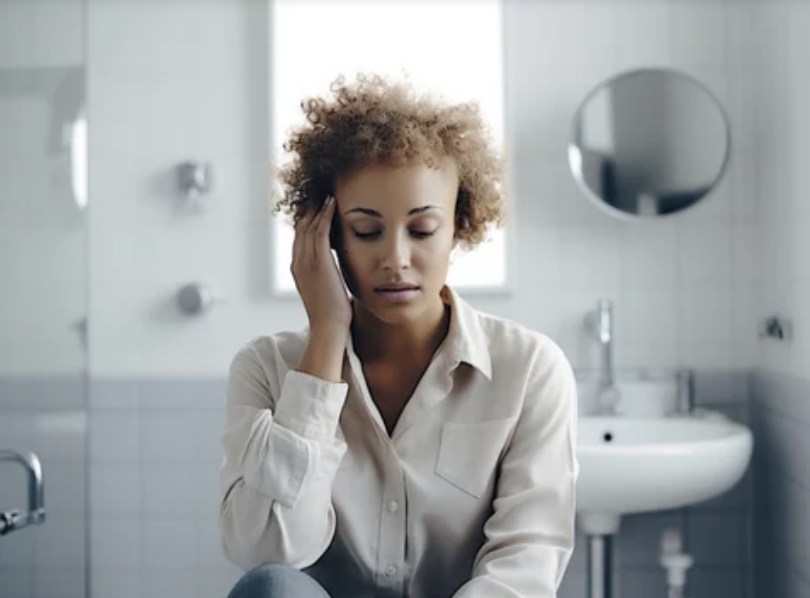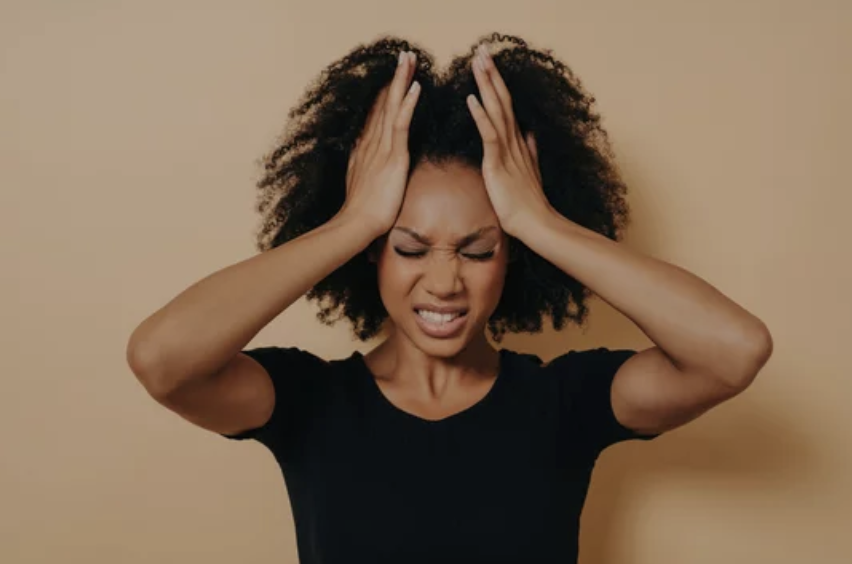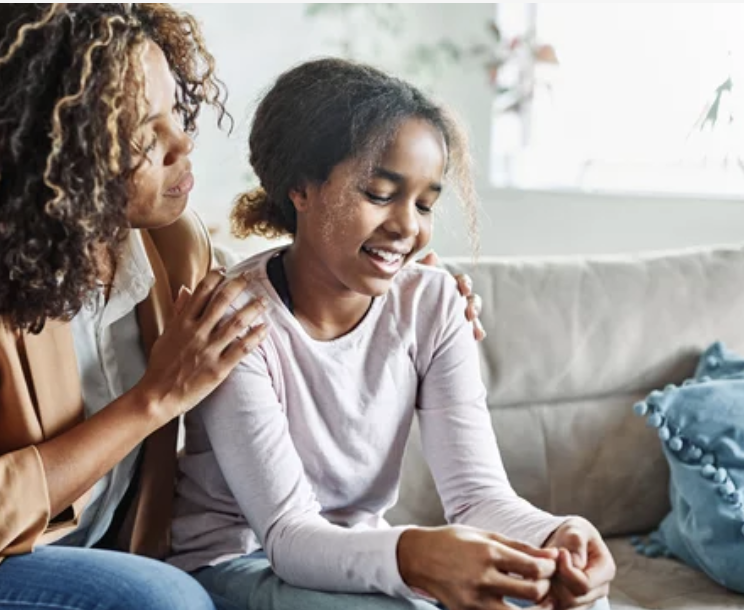
Black hair has been a powerful symbol of identity, spirituality, and individual expression throughout history. From the intricately braided hairstyles symbolizing marital status in ancient African societies to the elaborate beaded crowns adorned by kings, Black hair has always transcended mere aesthetics. It has served as a potent symbol of cultural identity, spiritual connection, and individual expression. However, the pervasive stereotype of the “Strong Black Woman” has cast a shadow over the relationship between Black women and our hair, concealing a web of unacknowledged struggles and unspoken truths wreaking havoc on Black women’s mental and hair health. Yaah! delves into the intricate connection between the Strong Black Woman stereotype, chronic stress, and its impact on the mental and physical health of Black women, particularly in the context of our hair.
The Physiology of Stress and Hair Health
Stress, a universal human experience, takes a toll on the body, and the science is clear: stress takes a toll on hair health. Our hair follicles possess our own independent stress response system, separate from the central nervous system. When we experience stress, hormones like cortisol flood the body, triggering a cascade of negative effects, including hair loss and damage. For Black women navigating a world that often minimizes our struggles and burdens our with unrealistic expectations, this stress can become a constant companion, wreaking havoc on our hair and overall health.

In times of stress, the sympathetic part of our nervous system goes into action, regulating organs and the immune system. This system, in turn, influences the immune system, releasing specific substances that affect the brain. For hair follicles, stress leads to an increase in certain molecules, prompting the follicles to produce cortisol, a stress hormone. This cortisol accumulates and is released in a specific part of the hair follicles, establishing a feedback loop that regulates the expression of stress hormones within the follicles.
Rather than passively responding to stress hormones, hair follicles actively release factors that can affect our skin. This unique response system becomes particularly active when external stressors are present, highlighting its role as a frontline defender against external challenges. For Black women, navigating a world that often overlooks our struggles and imposes unrealistic expectations exacerbates this stress. The independent stress response system of hair follicles becomes a battleground, with hormones like cortisol triggering hair loss and damage. The toll on our hair becomes a visible manifestation of the chronic stress we endure.
The Superwoman Schema: A Double-Edged Sword
The pressure to conform to the “Superwoman Schema” intensifies the impact of the Strong Black Woman stereotype. This cultural norm expects Black women to embody unwavering strength, juggling multiple roles while suppressing our emotions. This stereotype portrays Black women as stoic, resilient figures capable of effortlessly shouldering life’s burdens while maintaining unwavering strength. While this image may initially appear empowering, it masks a deeper reality marked by chronic stress, suppressed emotions, and an insidious erosion of mental and physical well-being. A coping mechanism, research indicates that has detrimental effects on mental health. The constant suppression of emotions leaves Black women vulnerable to psychological distress, including depression, anxiety, and suicidal thoughts.

The irony lies in the fact that this constant suppression often discourages Black women from seeking necessary mental health support. Fearful of appearing weak or jeopardizing our carefully constructed image of strength, we remain silent, allowing our struggles to fester in the shadows. This lack of support creates a vicious cycle, amplifying the negative impact of stress on our mental and physical health, including our hair.
Breaking Free from the Strong Black Woman Stereotype
Breaking free from the shackles of the Strong Black Woman stereotype requires a paradigm shift. Prioritizing self-care and emotional well-being must become the cornerstone of every Black woman’s journey. This involves embracing vulnerability, building a supportive network, cultivating healthy coping mechanisms, and redefining strength.
Recognizing and validating the full spectrum of human emotions, including sadness, anger, and fear, is essential for emotional health.
Connecting with trusted individuals, such as family, friends, or culturally competent therapists, provides a safe space for sharing emotions and receiving support.
Practices like mindfulness, exercise, and creative expression can equip Black women with tools to manage stress effectively.
Strength lies not in suppressing emotions, but in acknowledging our and navigating our with grace and vulnerability.

By fostering a nurturing environment where emotions are acknowledged and vulnerability is embraced, Black women can nurture a healthier relationship with our hair and ourselves. This journey begins with dismantling the harmful narratives that have silenced our struggles for far too long. Only then can we truly reclaim our power and tap into the profound strength that lies not in the absence of emotions, but in the courage to express our freely.
Ultimately, dismantling the “Strong Black Woman” stereotype is not just about protecting hair; it’s about safeguarding the mental and emotional well-being of generations of Black women. It’s about creating a world where our struggles are no longer silenced, but heard and addressed with empathy and understanding. It’s about recognizing our strength not as an unyielding force, but as a vibrant tapestry woven from vulnerability, resilience, and the courage to be human.
Leave a Reply